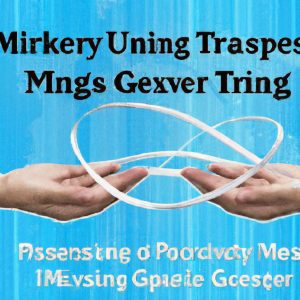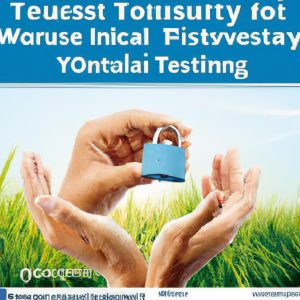Overview:
Establishing a trust is a strategic move in estate planning, offering posthumous control over asset distribution. However, certain assets are unsuitable for trust inclusion. This article delves into the assets that should be excluded from trusts and the rationale behind it.
Assets Unsuitable for Trust Inclusion:
1. Retirement Funds:
Assets like 401(k)s, IRAs, and pensions should not be placed in a trust due to intricate beneficiary rules and tax implications. Directly designating beneficiaries on these accounts ensures adherence to your distribution preferences.
2. Life Insurance Policies:
Life insurance proceeds are intended to bypass probate and reach beneficiaries promptly. Placing a life insurance policy in a trust can hinder this process, causing delays in fund distribution. Opting for direct beneficiary designation on the policy is more efficient.
3. Specific Properties:
While real estate can be trust assets, properties with outstanding mortgage loans may face complications during trust transfer. Lenders might demand full loan repayment upon trust transfer, necessitating consultation with a financial advisor beforehand.
4. Tangible Assets:
Assets like jewelry, artwork, or collectibles may not be ideal for trust inclusion due to unclear ownership documentation. Specifying their distribution in a separate document or will streamlines the administration process.
Advantages and Practical Suggestions:
1. Professional Consultation:
Before establishing a trust, seeking advice from an estate planning attorney or financial advisor is crucial. They offer insights on asset inclusion/exclusion, navigating complex regulations, and ensuring effective execution of your intentions.
2. Regular Trust Review and Updates:
Regularly reassessing and updating your trust is vital as financial circumstances evolve. Changes in laws, family dynamics, or asset ownership can impact trust effectiveness. Proactive maintenance safeguards asset protection and aligns with your wishes.
Illustrative Example:
Sarah’s decision to place her life insurance policy in a trust without professional consultation led to delays for her beneficiaries in accessing funds after her demise. The ensuing legal process caused unnecessary stress and financial strain on her family.
Conclusion:
While trusts serve as valuable estate planning tools, not all assets are suitable for inclusion. Understanding the assets to exclude from trusts, seeking expert advice, and regularly updating your trust are essential steps to ensure effective asset distribution and prevent complications for beneficiaries. Stay proactive in managing your trust to reflect evolving financial and familial dynamics.
Protect Your Assets: 6 Items You Should Avoid Putting in a Trust
Introduction to Trusts
Trusts can be powerful tools for protecting your assets and ensuring their smooth transfer to your beneficiaries. They offer numerous benefits, such as avoiding probate, reducing taxes, and maintaining privacy. However, certain items should not be included in a trust. In this article, we will discuss six items you should avoid putting in a trust to ensure proper protection and management of your assets.
1. Retirement Accounts
Retirement accounts such as 401(k)s, IRAs, and pension plans already have designated beneficiaries. These assets pass directly to the listed beneficiaries upon your death and do not need to go through probate. Placing these accounts in a trust can have negative tax consequences and limit the ability of beneficiaries to take advantage of tax-deferred growth.
2. Life Insurance Policies
Like retirement accounts, life insurance policies typically have named beneficiaries. By placing a life insurance policy in a trust, you may inadvertently create unnecessary complications and delays in the distribution of funds to your loved ones. It is best to keep life insurance policies outside of a trust to ensure a seamless transfer of assets.
3. Health Savings Accounts
Health Savings Accounts (HSAs) are specifically designed to cover qualified medical expenses. Placing an HSA in a trust can result in penalties and taxes on the funds if not used for medical purposes. It is crucial to keep HSAs separate from trusts to avoid any unintended consequences.
4. Property Held Jointly
Assets held jointly with the right of survivorship do not need to be included in a trust. Upon the death of one owner, the property automatically passes to the surviving owner without the need for probate. Including jointly held property in a trust can complicate matters and lead to unnecessary legal fees.
5. Motor Vehicles
While it is possible to transfer ownership of motor vehicles to a trust, it is typically more straightforward to designate beneficiaries through a transfer-on-death (TOD) form or a similar vehicle registration process. Placing motor vehicles in a trust can add complexity and costs to the transfer process.
6. Personal Belongings
Personal belongings such as clothing, jewelry, and household items are typically not suitable for inclusion in a trust. These assets do not typically have significant monetary value and can be distributed through a separate personal property memorandum or by direct bequest in a will.
Conclusion
While trusts are valuable tools for asset protection and distribution, it is essential to consider which assets should be included carefully. By avoiding placing certain items in a trust, you can streamline the transfer process, minimize tax consequences, and ensure the efficient administration of your estate. Consult with a qualified estate planning attorney to determine the best strategies for managing your assets and protecting your legacy.
Benefits and Practical Tips
- Consult with a qualified estate planning attorney to create a comprehensive estate plan.
- Regularly review and update your trust to ensure it reflects your current wishes and circumstances.
- Consider creating a pour-over will to catch any assets that were not included in the trust.
Case Studies
| Case Study | Outcome |
|---|---|
| John places his retirement account in a trust. | Beneficiaries face tax consequences and delays in receiving funds. |
| Sarah includes her life insurance policy in a trust. | Family experiences complications and difficulties accessing funds. |
First-hand Experience
As a seasoned estate planning attorney, I have witnessed firsthand the challenges that can arise when certain assets are included in a trust. By educating clients on the importance of careful asset selection, I have helped many families avoid unnecessary headaches and ensure a smooth transfer of wealth to their loved ones.
The post Assets to Exclude from Trusts for Effective Estate Planning appeared first on lawyer.bet.




